Malaysia
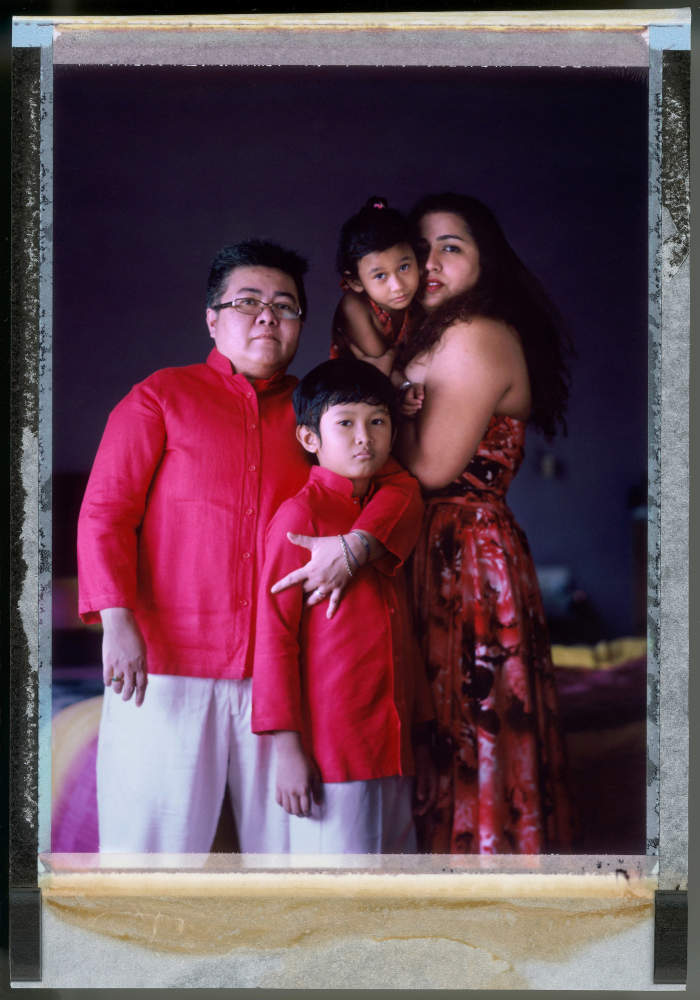
Mitch Yusma & Lalita Abdullah
47 year old trans man Mitch Yusmar, with his partner of 17 years, 39 year old Lalita Abdullah, and their adopted children, nine year old Izzy and three year old Daniya at home outside Kuala Lumpur.
Mitch is the Senior Manager of Seed, an NGO that caters to the needs of homeless people in Kuala Lumpur. Lalita is the Regional Learning and Development Manager for an oil and gas company. Their relationship is not legally recognised and they live with the insecurity that their family could be torn apart should something happen to Lalita who is the only recognised parent.
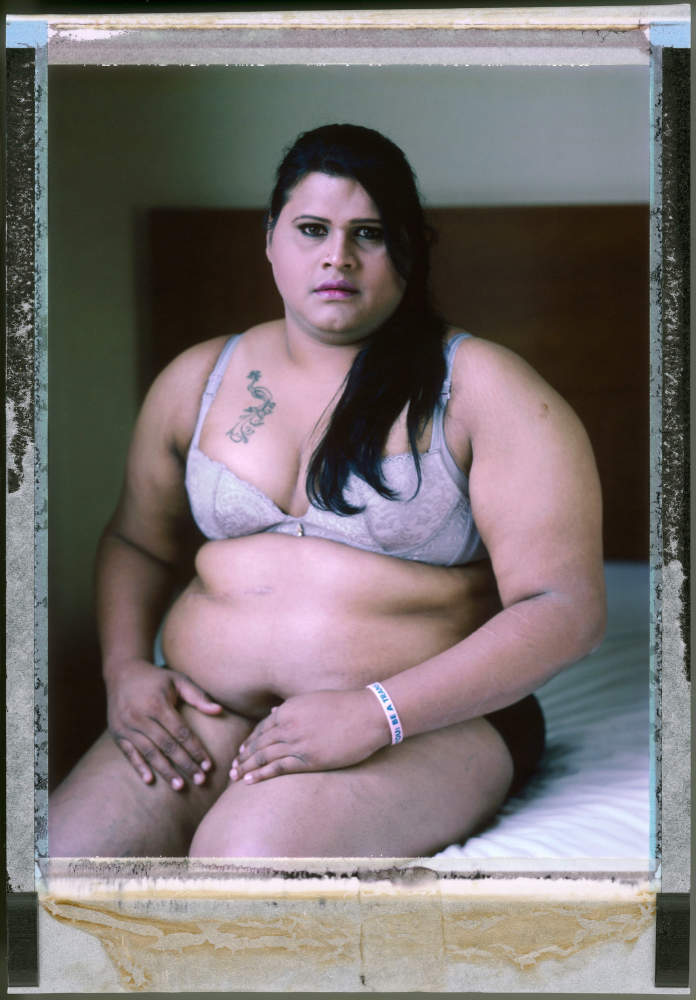
Abinaya Jayaraman
33 Year old Abinaya Jayaraman is a transgender woman. Until the age of 19 she always considered herself a normal boy. It wasn’t until her late teens that she started to question herself. She googled ‘a man with female character’ and started to learn about the transgender community. She went to see a doctor who told her she had a female’s soul trapped in a male’s body.
At first she strongly rejected the idea. She wanted to tell her mum but she is from a very strict family and didn’t think it was possible. “I was so scared to tell her, and I started to cut my arm due to depression. I used to hate myself, and I used to hate God ‘Why did you create me this way?’ It took me more than three years to accept who I am. Then I started to dress up in the house. And I would see my mum’s sari and think ‘when will it be my turn to wear that?'”.
In June 2008 she told her mum ‘Ma, I’m not a boy, I’m a girl, please understand'” Abinaya’s mother slapped her in the face and walked away. One evening in 2009, Abinaya came home after work ‘all my relatives were there. I asked ‘what’s going on?’ – my mother told me – ‘we’re going to look for a wife for you’ I was shocked. I said ‘What? Please understand, I cannot carry her leg like this and bang her!’ Her mother replied ‘Don’t worry, once you have a child, everything will be okay’. Her relatives tried to introduce her to a woman. Abinaya met her wife to be, and told her ‘Look I can’t marry you’ then Abinaya explained everything.
The pressure continued though until Abinaya couldn’t take it any longer and in April 2009 she took a cocktail of sleeping pills and pain killers in an attempt to end her life. She ended up in hospital for 3 months. Her mother didn’t visit her once. Abinaya’s family continued to refuse to accept her gender identity. She was disowned and thrown out of the house.
Abinaya worked in corporate banking but couldn’t reconcile having to act like a man, with her true identity. Eventually she quit. Without a job and support she couldn’t pay rent. “I didn’t have a home and no one was willing to help me. I approached another transgender woman for help. She showed me the street. And that’s how I survived. I’m still doing it. I have to. I’m homeless and jobless. I have no choice. If I had the chance I would leave Malaysia. I can go somewhere where I can live and earn with dignity.”
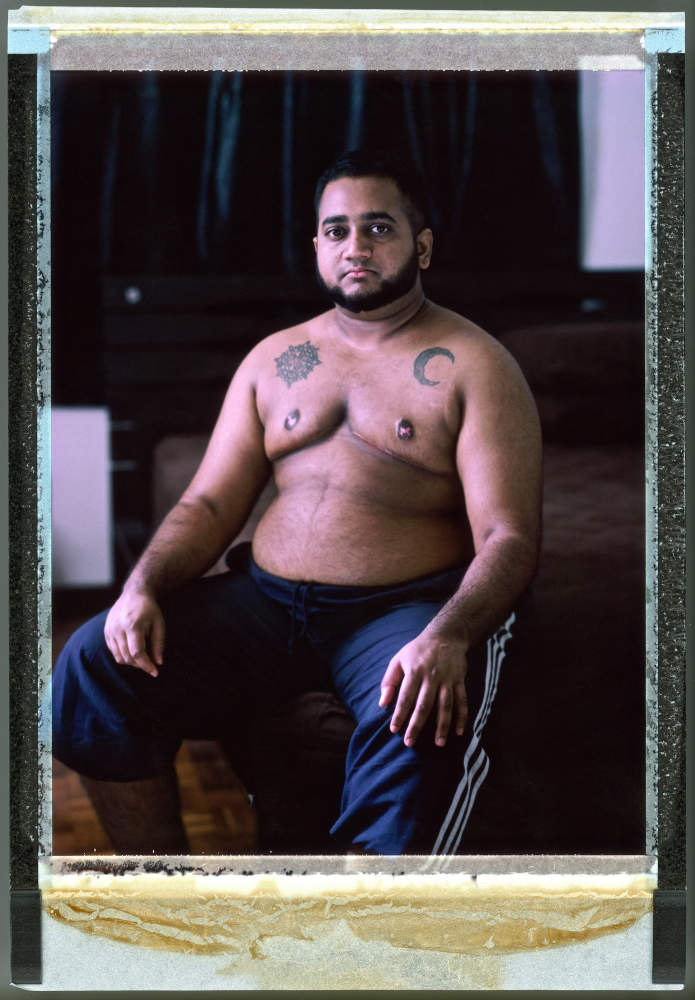
Dorian
27 year old is a pansexual trans man Dorian. Dorian was assigned female at birth. He grew up feeling alone and pressured to conform to family and societal expectations. As the eldest child in a conservative Indian family he didn’t feel safe to discuss his desire to live as a man. His depression reached such a level that he attempted suicide several times.
His parents found out he was seeing a woman and when he was 18 years old his father gave him an ultimatum, stay at home and be the straight woman ‘he should be’, or leave. Dorian left and went to Singapore. He faced constant persecution based on his sexuality including loosing his job in a cafe when his boss saw him being affectionate with a woman.
Always impoverished, and sometimes homeless, he was forced to do sex work for money. The first time he met a client, he found that penetration was too painful. He asked the client to stop. The client refused and raped Dorian. He bled for 12 hours afterwards.
He was employed at a mechanics workshop. The men there would constantly harass him. He was groped and told that the reason he liked women was that he had never been penetrated – and that he should allow them to do it for him. While in Singapore he found out it was possible for him to shape his external self to match who he was inside. He started his transition by taking hormones in January 2010, and then in September 2014 had a double incision mastectomy (top surgery).
Today he lives in Kuala Lumpur with his partner and their 5 year old son. Feeling so alone growing up has inspired Dorian to become an activist for trans men in Malaysia. To this day his parents and siblings struggle to accept him as the man he is.
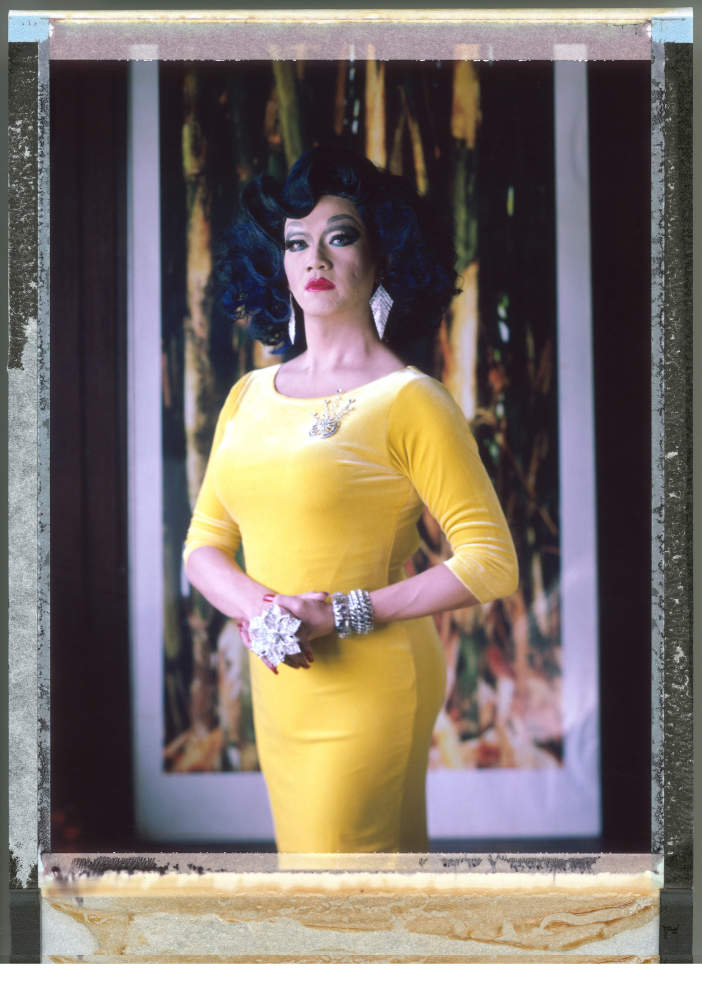
Shelah
40 year old drag performer and human rights advocate Shelah at home in Kuala Lumpur. Shelah was a radio presenter for BFM before she was taken off air after the station received complaints from The Censorship Commission. “They still haven’t told me why I was taken off the air.”
Shelah is asked to perform for corporate events, but would never be allowed on national television. “In some respect things are going backwards” she says, “there are sectors of the Malay community that look at the LGBT community as a big no no. There is no differentiation in the minds of politicians between Malay and Islam. They feel like LGBT people are a challenge to the Malay identity. The funny thing is that 20 years ago, drag queens were visible. Malaysia is in the middle of a racial, political, sexual identity crisis. We are not fighting for LGBT issues, we’re fighting for basic human rights – the right to be!”
During the day Shelah is Edwin. He was a committee member of Seksualiti Merdeka, a LGBT movement and collective of individuals and NGOs around Malaysia that provided a safe and open space for anyone and everyone to share their stories and enjoy each others individuality while learning about things like legal rights, safe sex, and police discrimination.
In 2011 at the beginning of the fourth Seksualiti Merdeka, the festival was labeled by the media and politicians as ‘The Sex Club’ and banned. Two truck-loads of police came to the festival to enforce the ban. “There were more cops than attendees” says Edwin. Since then Seksualiti Merdeka has not been able to take place. Edwin says “I feel so passionately about this because this is where Shelah first officially appeared in the world. It’s very upsetting. I thought I had found my own safe space. It’s painful when you see something of such great potential breaking down.”
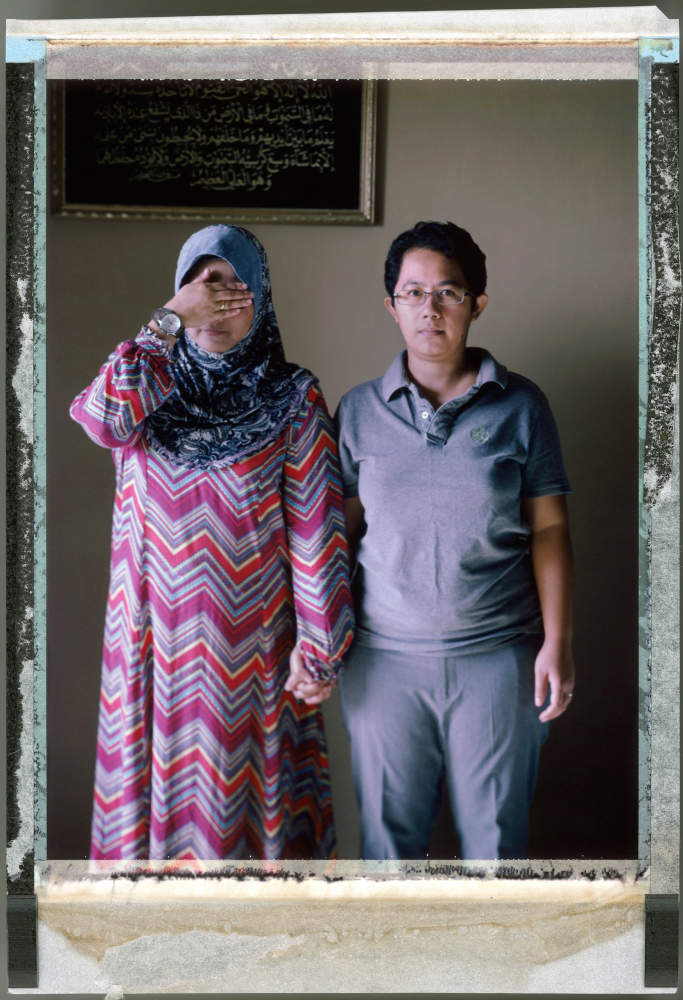
E & Z
Lesbian couple E, (40, left) and Z (33, right) at home in Kuala Lumpur. E has two children from her previous marriage. They live with E and Z. The father of the children is filing for custody. He does not know E is in a relationship with another woman. If he did he could use that information to gain custody under Islamic law.
They are gravely concerned their children could be taken away from them and that their family could be broken up should the ex-husband find out about their relationship. They must also keep their relationship hidden from everyone. They live with the fear that at anytime someone could call up the religious department to raid their house and that they could be charged with breaking the law as same sex relationships are illegal.
Their children would also be taken from them. E says “It really pisses me off: knowing that our basic needs, to be human, to live the life as we want to – that can be taken away from us.”
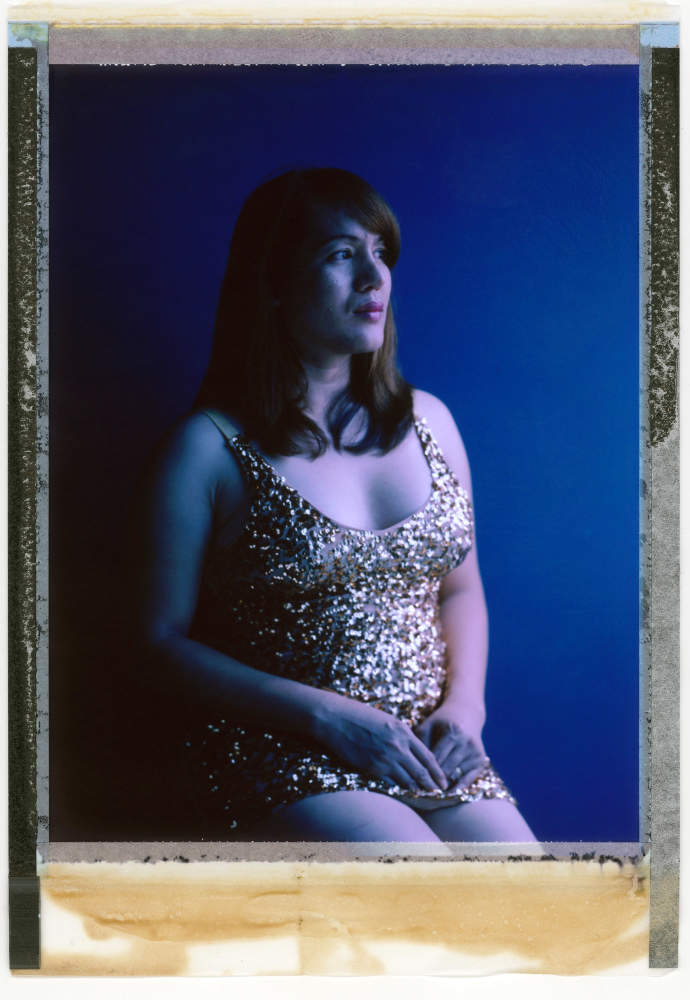
Erina
36 year old Erina was forced to become a sex worker to survive. Like many tansgender women in Malaysia, she has faced discrimination and violence on numerous occasions. Aside from the casual verbal abuse, being forced to wear male clothes in a job she had in a hotel and her family members forcibly cutting her hair short, she has been arrested and beaten.
She has also been raped by three men who also beat her with sticks. She didn’t make a report to the police “The police are bad too” she says, “and the next thing you know, you’ll be the one who is arrested.”
On one occasion, when she was arrested for cross-dressing (a crime in some parts of Malaysia) and taken to the police cells. One of the inmates forced her to perform oral sex on him. She was transferred to another prison where, the next day, she was raped. One of the inmates penetrated her. He was not wearing a condom. Erin complained to the police, but they threatened to beat her and sent her back into the same cell with the man who raped her.
For transgender sex workers, rape is common. Most feel they cannot go to the police as they are considered men and there is a perception that men cannot be raped. Worse, they will face further persecution from the police should they report a case of sexual violence
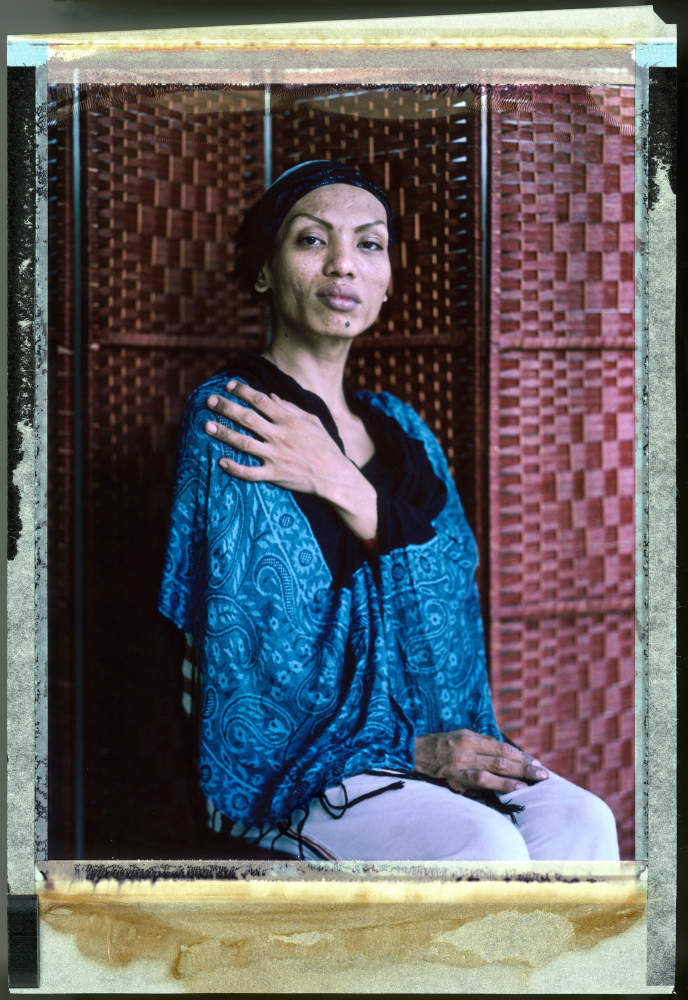
Mimi
31 year old Mimi (not her real name) came to Kuala Lumpur from Selangor. “I came to Kuala Lumpur, just like everyone else, to get a job, and what I thought would be an easy life. At first it was just that – I worked with a fashion designer for four years. I was happy. I was renting an apartment dressing as myself (as a woman). At night time I’d go out, have fun. I had a boyfriend, he was my first love, but I found out he was seeing another trans woman, so after two years we broke up. I was very depressed. I wasn’t getting any support,
I was feeling vengeance towards men so I started hanging around with my trans friends. Many of them were sex workers, but they could understand everything. I got involved in nightlife – sex work and drugs. It helped me to forget about my boyfriend and the pressures I felt from society. My performance at my job went down dramatically. Before I knew it, I was addicted to drugs.
I stopped my job. I moved closer to the other trans. I didn’t realise how low I was getting until I was taken to prison. I was arrested for selling drugs. No matter how much money I found from sex work, it was never enough, it always went on drugs. Now when the police see me they say – ‘oh you again.’ I’ve been arrested many times. Sometimes for drugs, sometimes for sex work, but the most often it is the Jawi (the religious department, under the Sharia Law) for cross-dressing.”
There is very little support for transgender drug users. There is only one place that provides support but only to males and females. “It is hard for us to go to get health services. When we go there they call us by our male names. Society looks down on us transgender. There is a real prejudice. People call us names, they look at transgender as a sex object, nothing else, we are not seen as normal people like men and women are.
People persecute rather than getting to know or help us. Now I’m sleeping on the street, on a cardboard. If I’m lucky I get a client and I can stay a night in a hotel with them. I want to stop drugs but I must take them to survive, just to be normal. I’m getting older now, I have nothing, and I’m the eldest in the family. I feel bad because I am a very bad example to my younger siblings.’
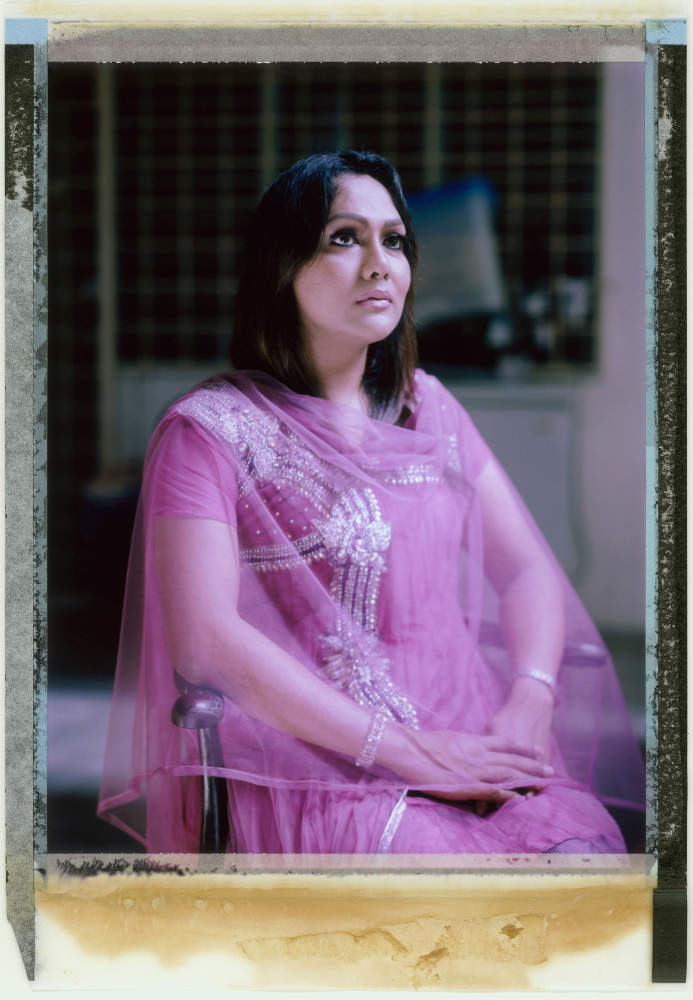
Nisha Ayub
35 year transgender woman Nisha Ayub was arrested and received a three month prison sentence for cross dressing (under Section 66, of the Shariah Law of Malaysia). She was imprisoned in the male section. She was humiliated daily. She had breasts implanted that same year and was made to walk topless through the prison. She was regularly verbally and physically abused. The guards shaved her long hair off, an important part of her female identity.
“My hair is my crown, it is my identity, it is the first thing I did when I got my independence – to grow my hair. I was in the chair crying as they cut it. I was begging, ‘please, please, please’ he just ignored me. As each hair dropped, so did my heart.”
On the first day she was forced to perform oral sex on six men. “I was scared, the guys were scary.” After that she sought protection from one of the prison guards in return for sex.
Nisha says “one of the worst things about being in prison is that you don’t feel like you own your body anymore, it’s like people have the right to do anything to you.” Once released she found she had lost the job she had in a hotel. In order to get money to survive she became a hostess in a bar which meant she had to perform sexual acts for money.
“I heard there was a NGO in Kuala Lumpur helping trans people. When I went to prison, I didn’t even know that law existed. When I came out of prison I was determined to fight and I wanted to help other trans people so I went to KL to volunteer.” Now Nisha advocates for other transgender women in Malaysia with a non governmental organisation.
